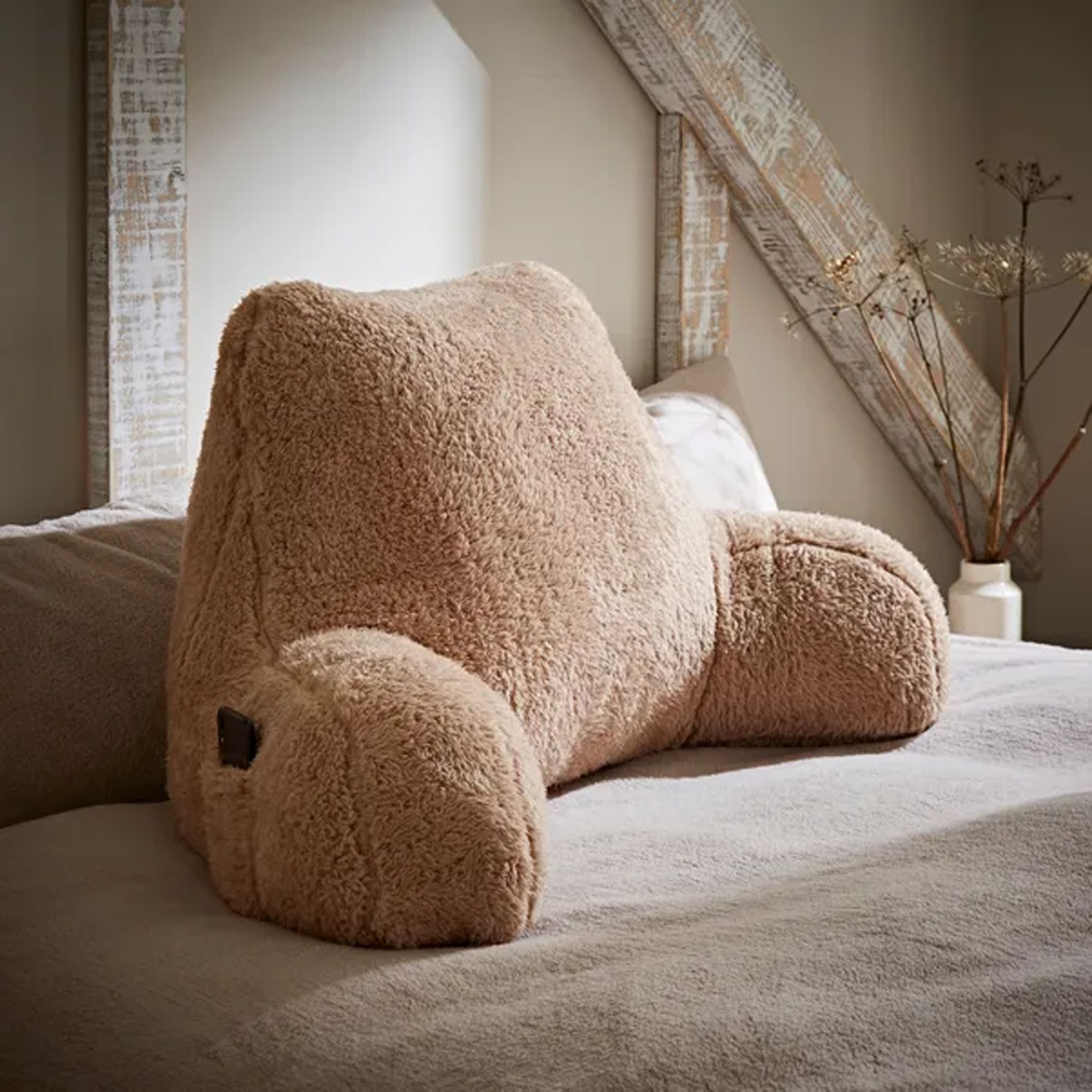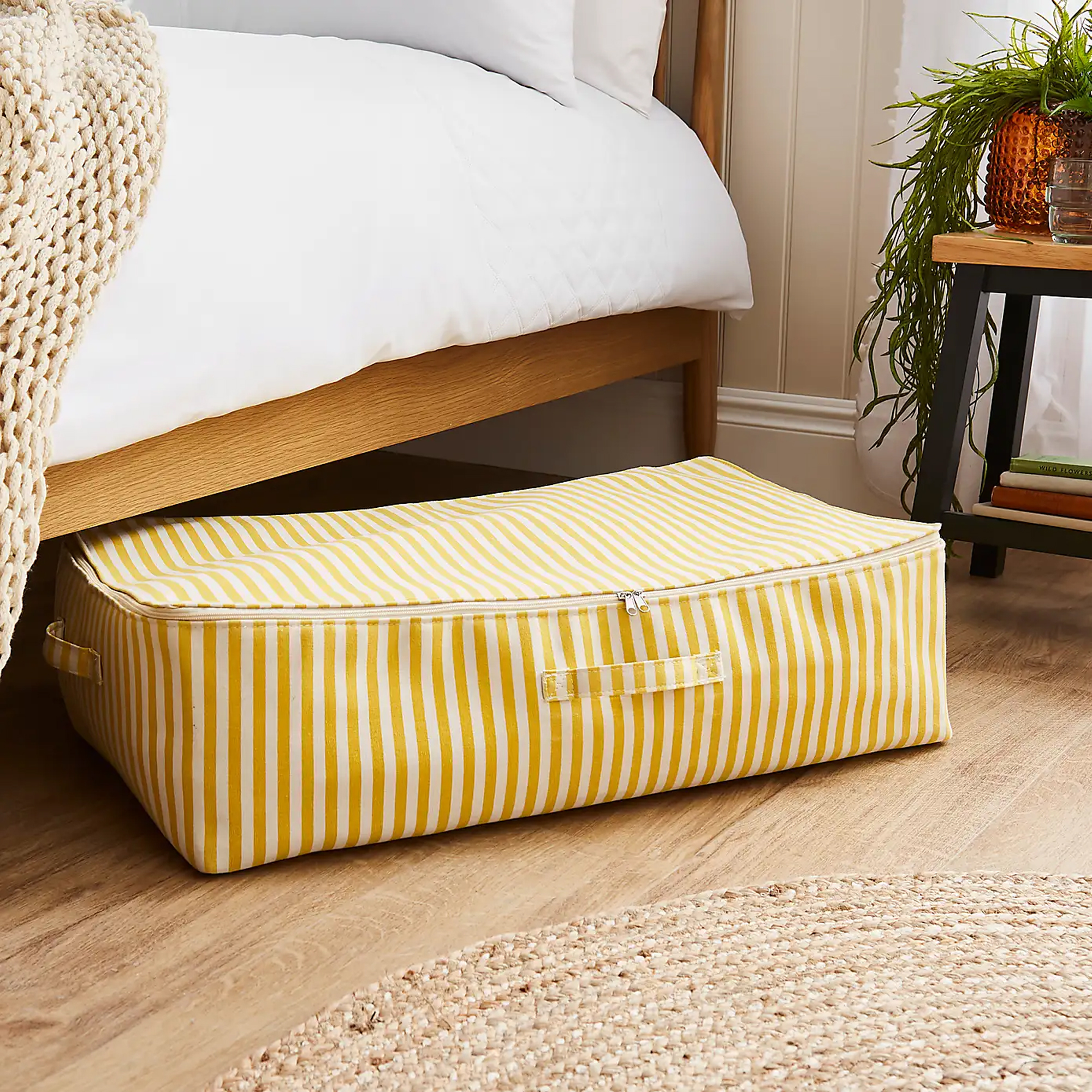I tried Dunelm's bedding recycling service and can't believe how easy it makes getting rid of old duvets and pillows
If you have old bedding cluttering up your space, this is where I recommend taking it

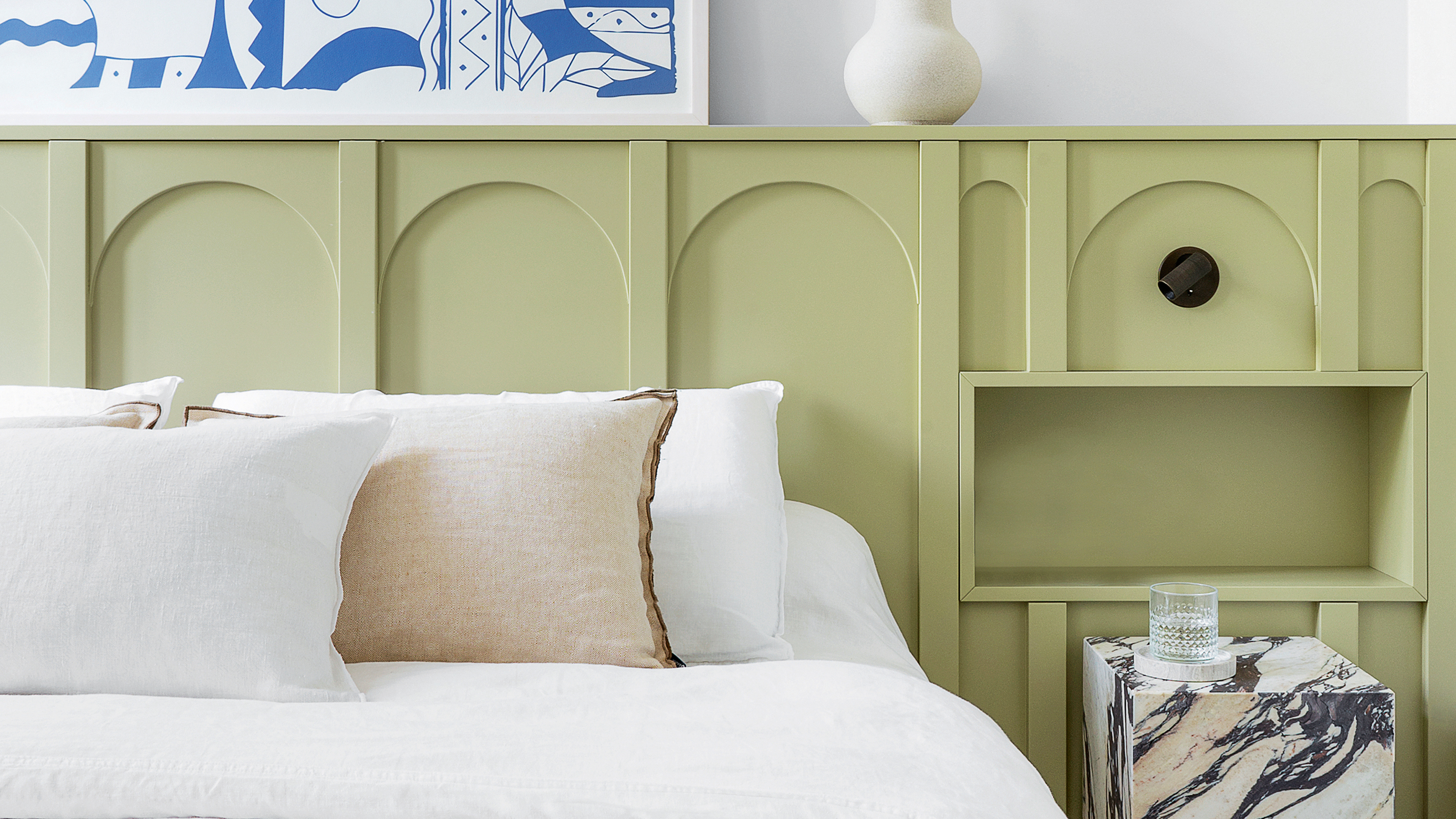
Sign up to our newsletter for style inspiration, real homes, project and garden advice and shopping know-how
You are now subscribed
Your newsletter sign-up was successful
As Ideal Home’s Sleep Editor, I test a *lot* of bedding for work. There are far worse ways to spend your time, but one of the downsides of this is that my home is forever crammed with far more duvets, pillows, and bed linen than it can reasonably hold.
Despite regular donations to friends, family, neighbours, charity organisations – even the postman on occasion – as it turns out, there’s only so much partially-used bedding you can give away to a good home. And as you’ll know if you’ve ever been at a loss for what to do with an old duvet, repurposing old bedding is far easier said than done because most of these items, sadly, aren’t easily recyclable.
That’s why I was so overjoyed when Dunelm launched its Textile Takeback scheme. This fantastic initiative is available in 175 Dunelm stores, and accepts any home textiles, from bedding and cushions, to throws and blankets, as well as unwanted clothing. Items are then sorted into those that can be donated, reused, or recycled into new products.
The Textile Takeback scheme has now been running for a while, but it’s still going strong, and as I’d just finished testing a new roster of bedding for our guides to the best duvets and best pillows, I decided to put the recycling initiative to the test to see how easy it was to use.
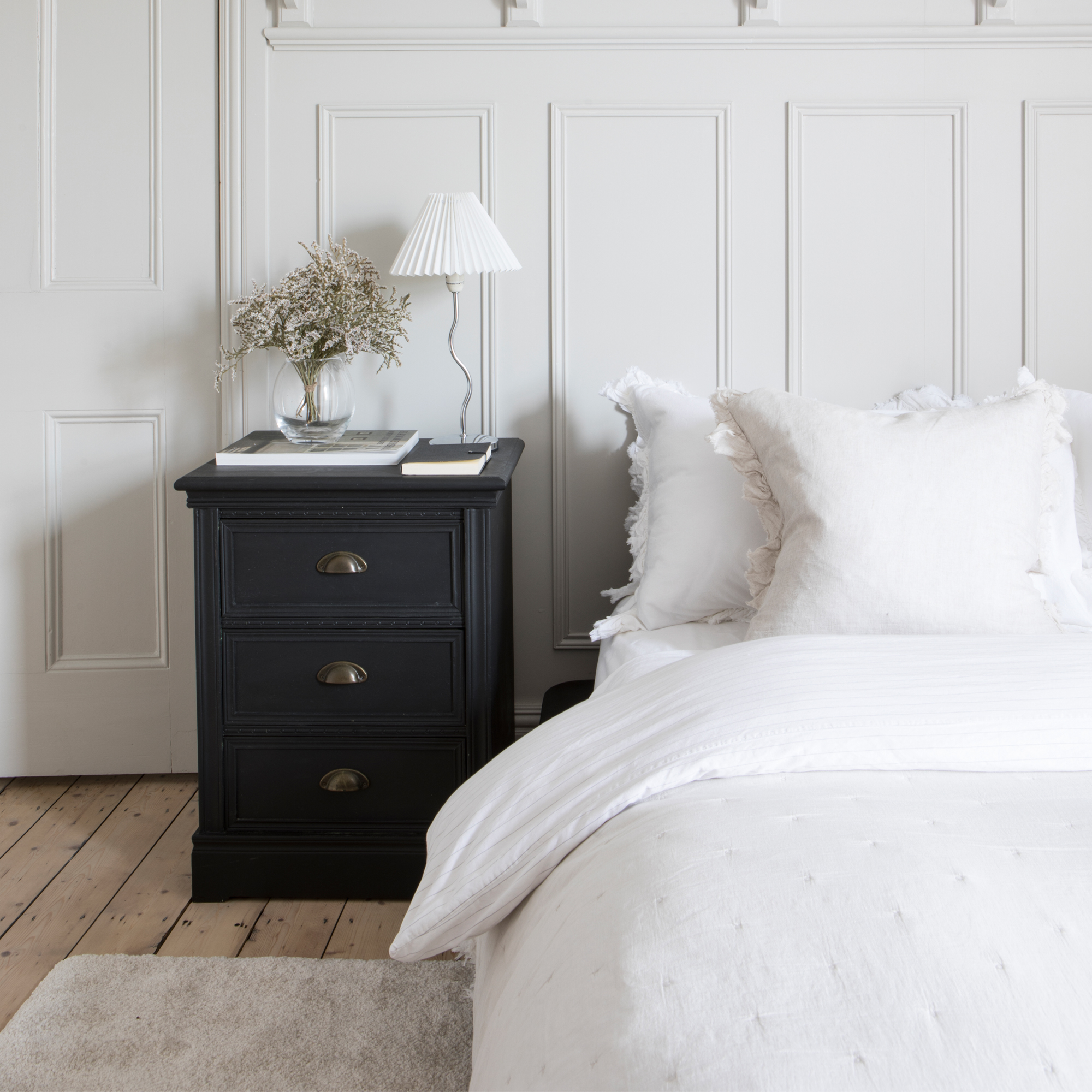
How does Dunelm's Textile Takeback scheme work?
Dunelm says there are three easy steps to recycling your old textiles in store. To take advantage of the Dunelm Textile Takeback scheme simply:
1. Wrap or bag your pre-loved textiles.
2. Drop them off at a participating store.
Sign up to our newsletter for style inspiration, real homes, project and garden advice and shopping know-how
3. They’ll be sorted by what can be re-used or recycled.
I'd include an additional step, which is 'find all of the excess home textiles you have stashed into every available storage space of your home and then pile them onto your bed to create a bedding mountain.'
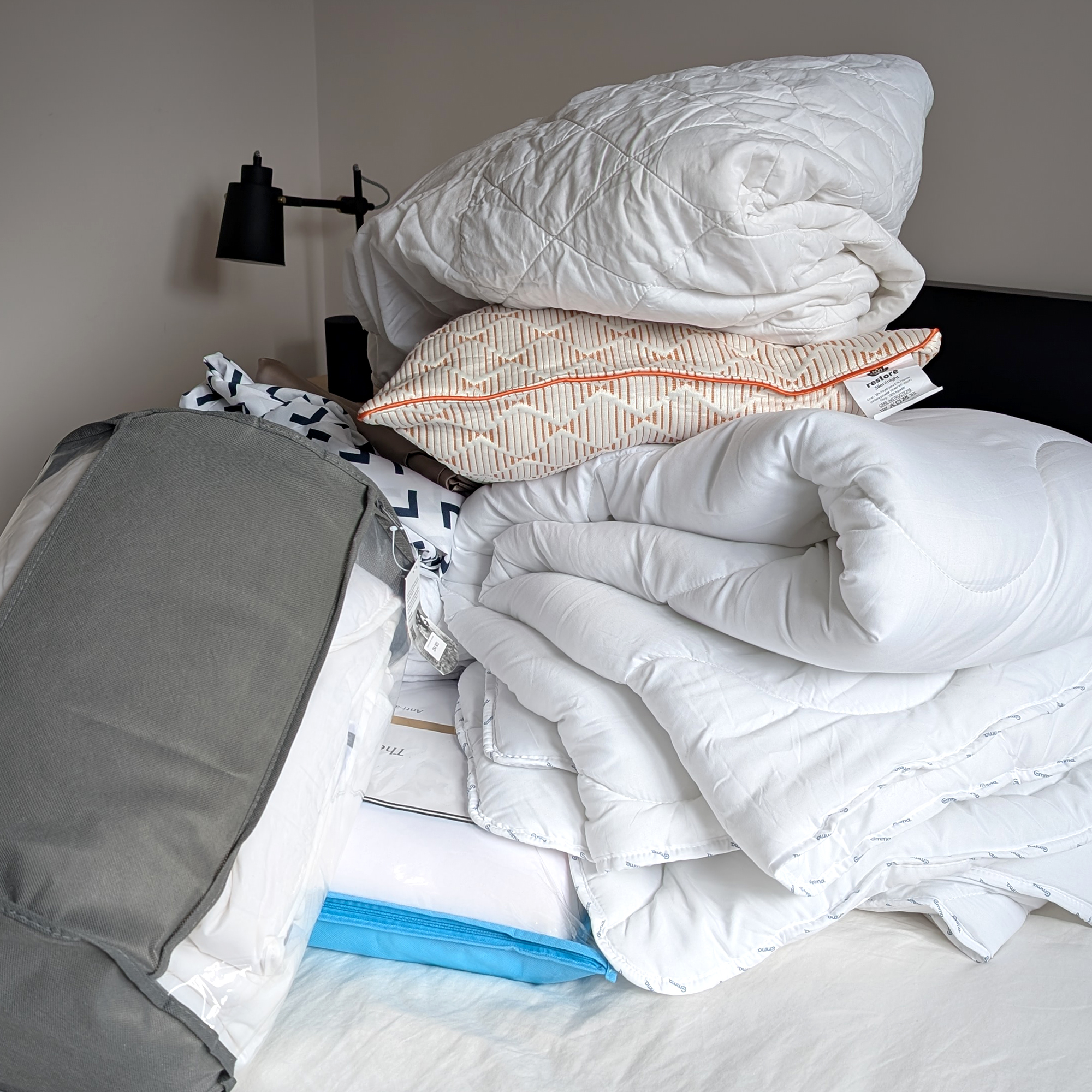
What I think is especially positive about the Textile Takeback scheme is that the home textiles you donate don't need to have originally been bought at Dunelm, they can be from any brand and in any condition. They just need to be clean and bagged.
As Dunelm explains, 'just remember, we can only accept clean, bagged textiles, but it's fine if they're ripped or torn.'
Bedding mountain step achieved, I set to work bagging up all of my textiles into bin bags, and popped them into the car to drive to my local Dunelm.
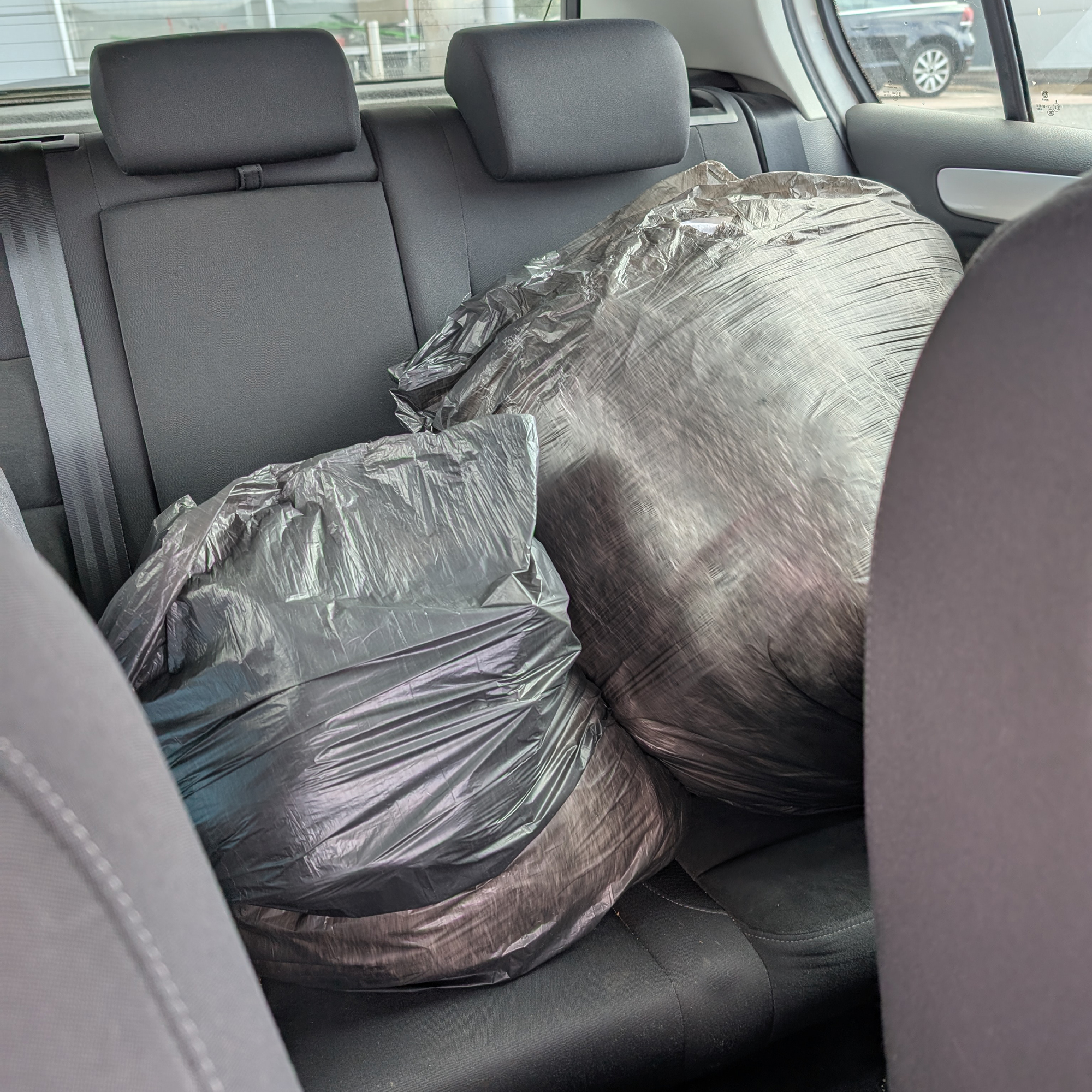
Admittedly, this process is easier with access to a vehicle. Had I not had a car I could use, I would have had to make multiple journeys on foot, or not waited until my bedding storage woes were at such a crisis point.
I was even luckier that my local Dunelm is on a retail park, which meant I could park the car close to the store, ready to carry in my bedding haul for recycling.
I initially went to the customer service desk to ask a member of staff where I should drop off the textiles, thinking I would probably need to hand them over at the checkout, but they directed me to a drop-off point at the back of the store, which I promptly set off to find, bin bags in tow.

When I found the textile drop-off point, the process really couldn't be simpler. The drop-off point is basically a giant green postbox with an opening you simply drop your textiles through.
There's a QR code you can scan to get more information on what happens to the textiles you've recycled, but you don't need to use that.
As the text on the drop-off point clearly explains, you can simply drop your textiles in through the slot and they'll then be collected and rehomed, reused, recycled, or made into something new.
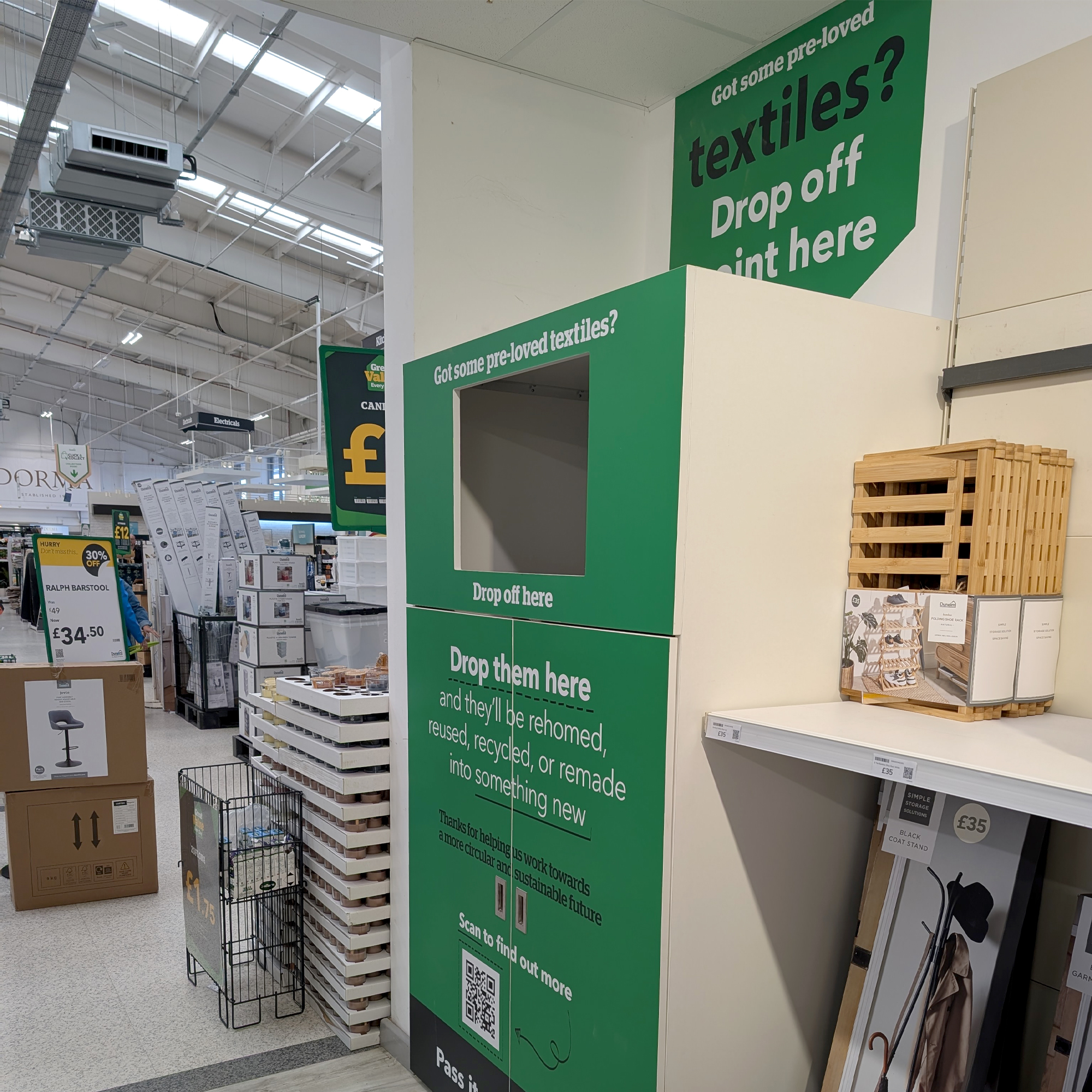
There was plenty of room for my three bin bags' worth of home textiles, but a staff member in the store did tell me the collection points fill up fast. And little wonder when there are so few places you can donate bedding in this way.
Dunelm's own data says the Textile Takeback scheme 'currently collects approximately 100 tonnes of unwanted textiles for reuse or recycling each month.' That's a huge amount of bedding and textiles diverted from landfill and responsibly repurposed.
I dropped my bedding in through the open slot, and the process was complete. And as Dunelm says, each item dropped off in this way 'helps towards a more circular and sustainable future', which is great news for the environment.
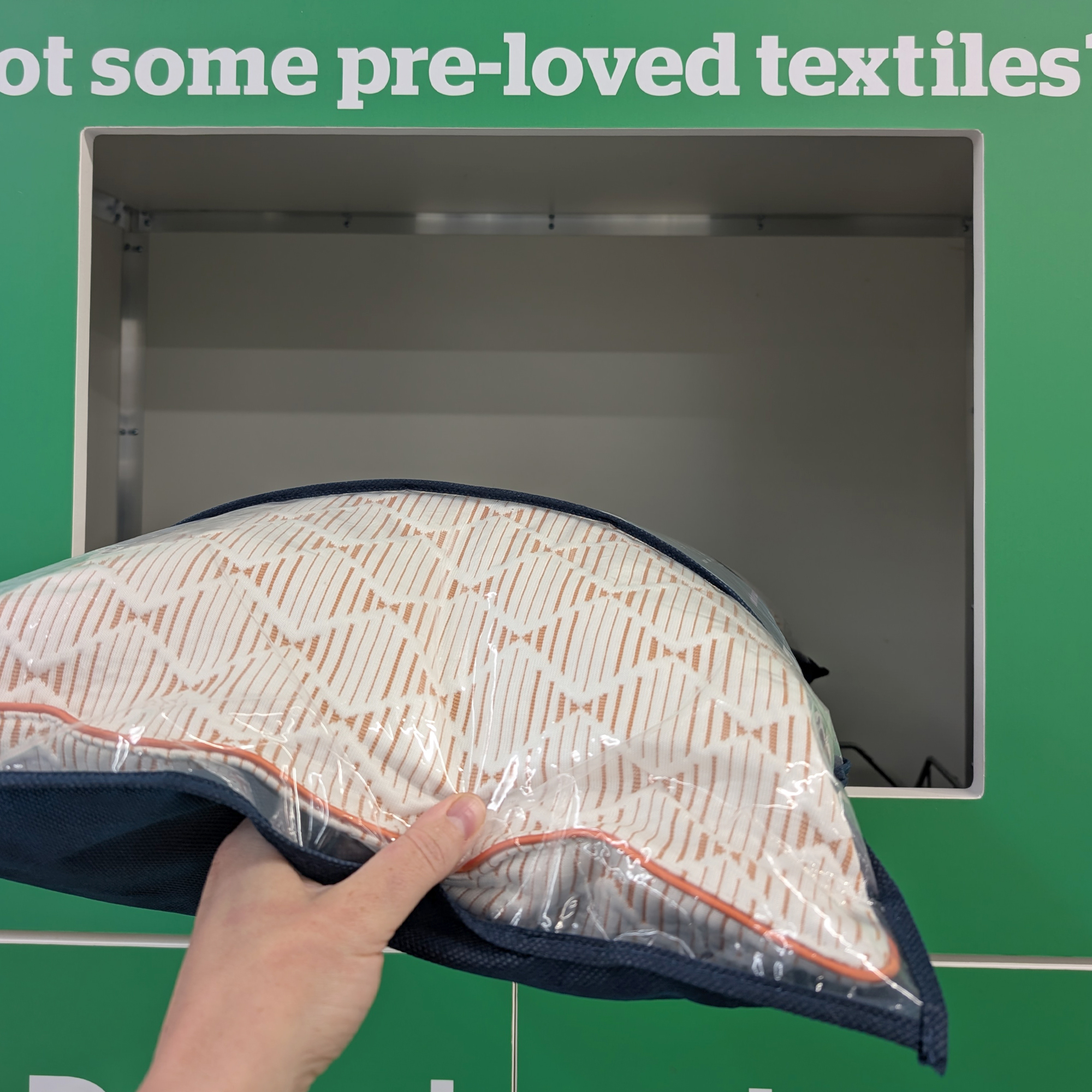
From a customer's point of view, it's also an incredibly easy way to dispose of old bedding, past-their-best cushions, throws, or any kind of home textiles and clothing, responsibly. If you're looking for an easy way to declutter your home, this is it.
Compared to the difficulties I've had in finding other ways to donate bedding and responsibly recycle household items like this in the past, I was honestly blown away by how easy Dunelm's Textile Takeback scheme was to use, and I'll most definitely be using it again. I've already recommended it to three people since my visit this week!
In fact, as far as I'm concerned, there's only one downside to the Textile Takeback scheme. In taking my old bedding into my local Dunelm store, I naturally had to wander through said Dunelm store... and in the process I found three more things I wanted to buy!
Obviously, this drawback can be mitigated with some self-restraint, but should you be wondering what caught my eye, these are the items I had to restrain myself from heading to the checkout with.
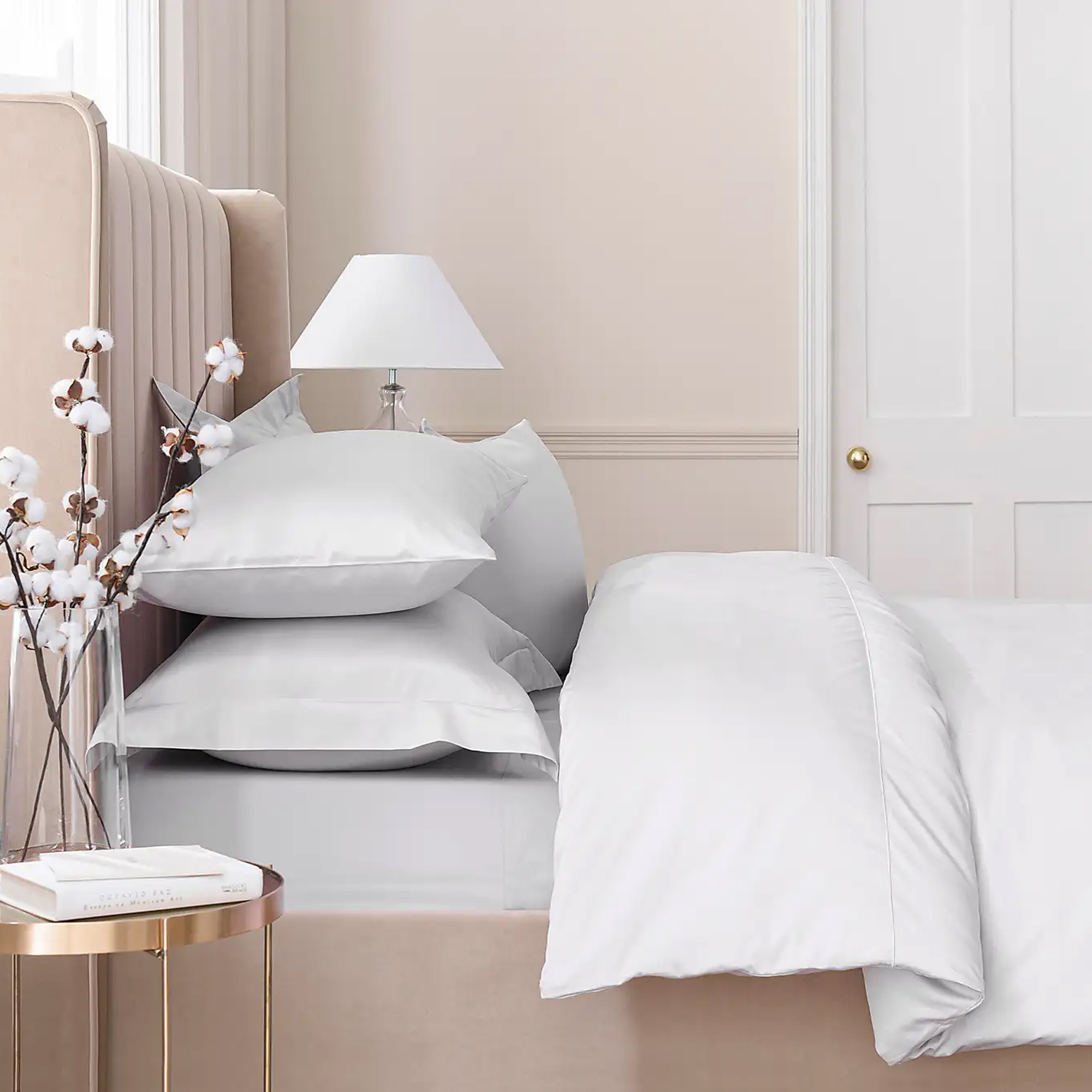
As we've established, I *really* don't need any more bed linen. But if I did... I would definitely have invested in this Dorma 300 thread count cotton sateen duvet cover. As the name suggests, it was super smooth and soft, and felt like bedding straight out of a luxury hotel.
FAQs
Does Dunelm still take old duvets?
Yes, Dunelm does still take old duvets in-store. I took two old duvets into my local Dunelm store recently, and the brand's Textile Takeback scheme couldn't have been easier to use.
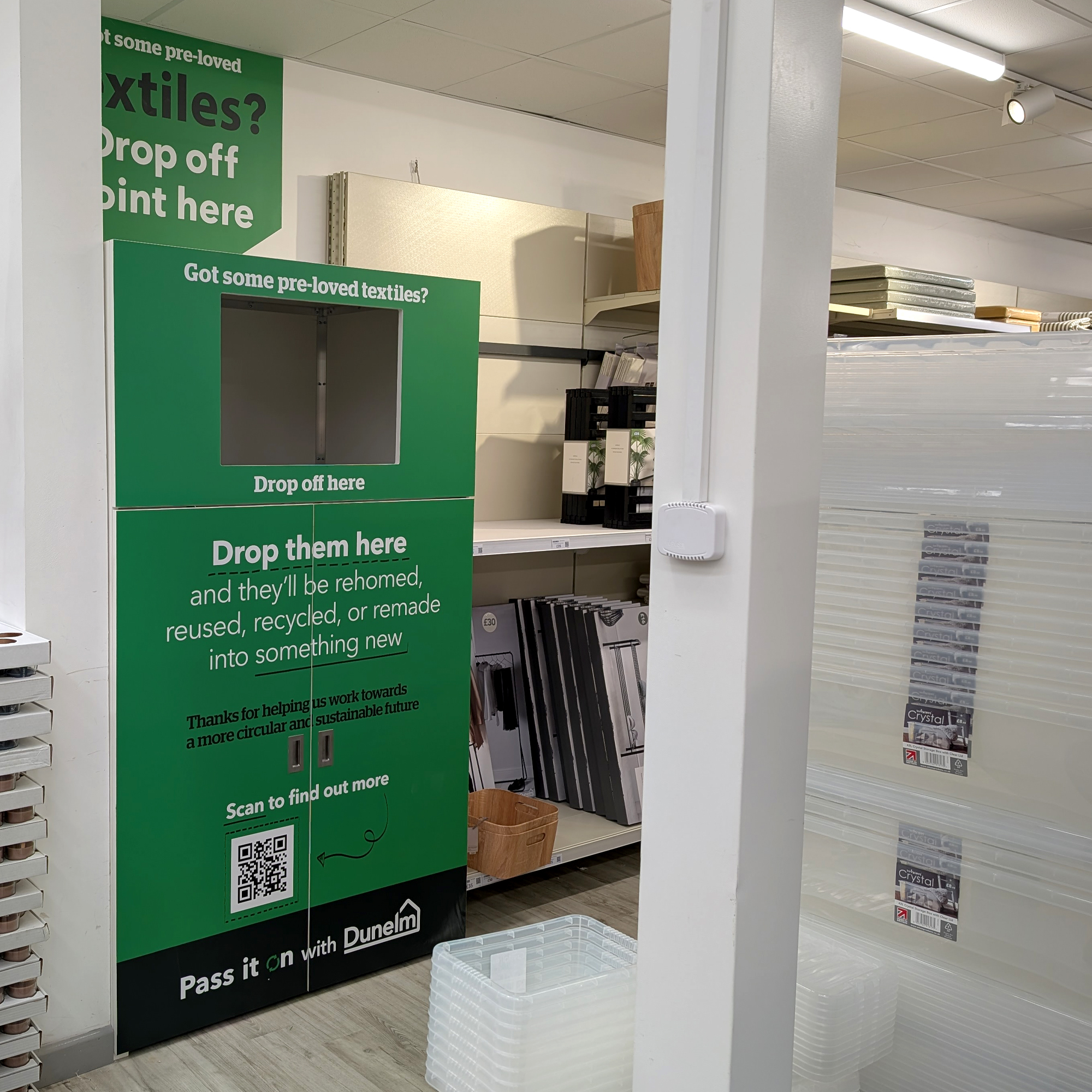
Can you take old bedding back to Dunelm?
Yes, Dunelm is one of the few places I've found that accepts all types of old bedding. The brand then rehomes, reuses, or recycles these items.
You just need to double-check that your nearest Dunelm store is one of the 175 stores across the country that offer the Textile Takeback service.
Currently, the only stores that don't accept old bedding are the Bracknell, Camarthen, Crawley, Feltham, Jersey, Kidderminster, Llanelli, Loughborough, Scarborough, Westfield, and Yeovil branches.

Amy is Ideal Home’s Sleep Editor and the Ideal Home Certified Expert on Sleep. She's spent the last five years researching and writing about what makes for the best night’s sleep during the day and testing out sleep products to find the best-in-class by night. So far she’s clocked up over 10,000 hours of pillow, duvet, and mattress testing experience.
Our go-to for all things sleep-related, she’s slept on and under bestselling products from Simba, Emma, Hypnos, Tempur, Silentnight, Panda, and many many more.
As a hot sleeper, Amy is always on the lookout for the most breathable bedding, but she also leads a wider team of testers to ensure our product testing encompasses both hot sleepers, cold sleepers, front sleepers, back sleepers, side sleepers, and everything in-between.
